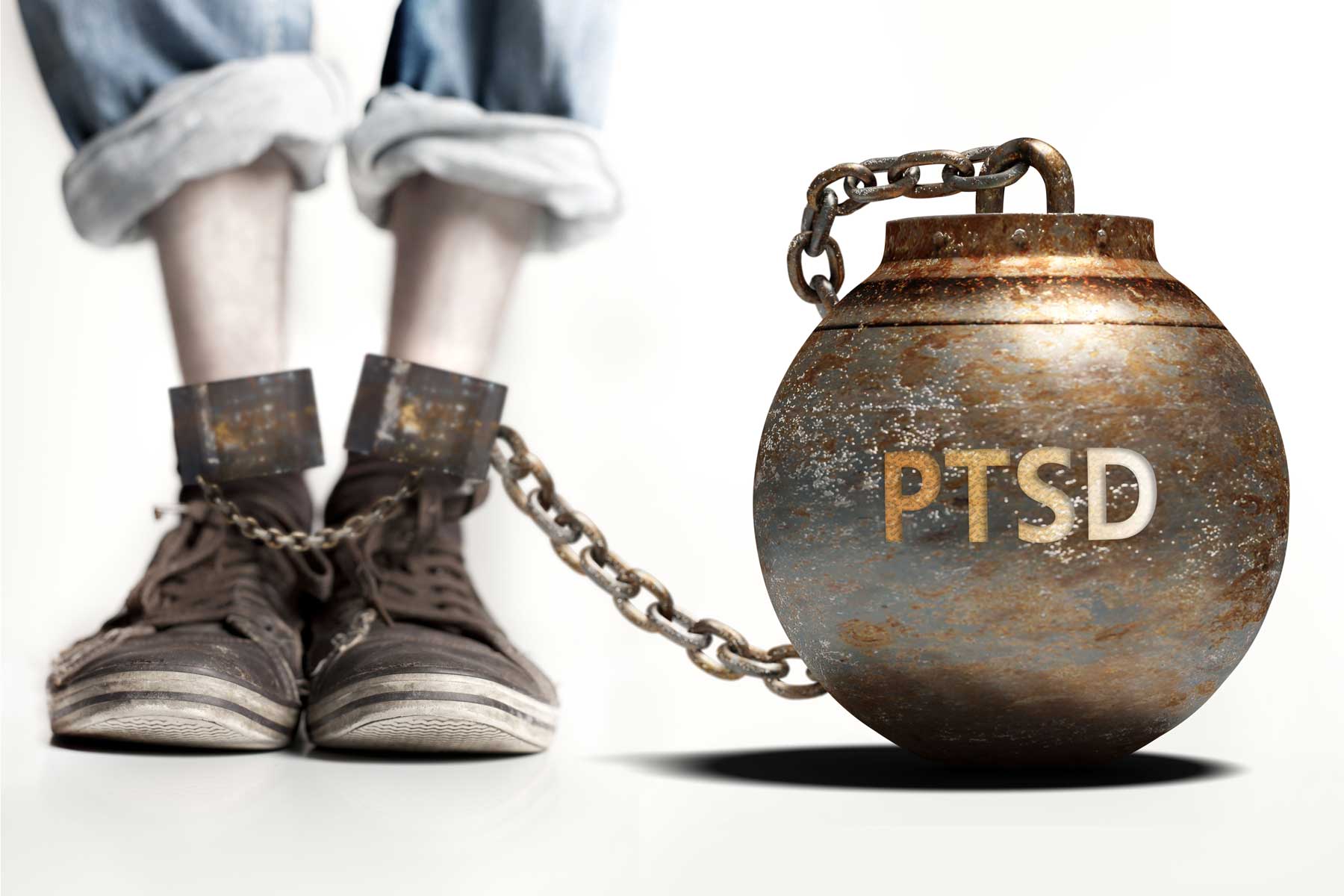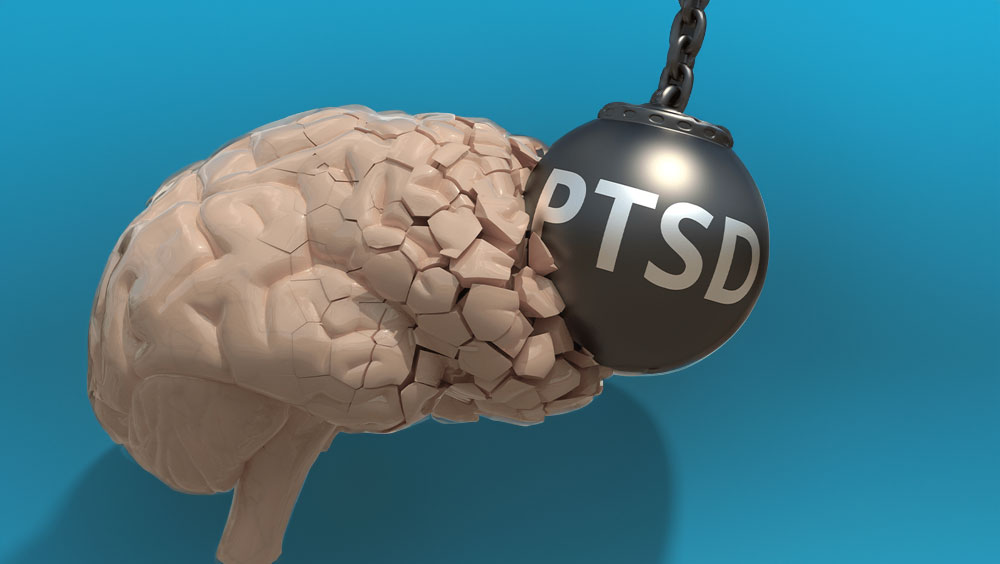Complex Post-Traumatic Stress Disorder (Complex PTSD) is a pervasive and multifaceted mental health condition that profoundly impacts the lives of those who suffer from it. Emerging from sustained and repeated trauma, such as childhood abuse, domestic violence, or other prolonged traumatic scenarios, Complex PTSD goes beyond the typical manifestations of PTSD, enveloping individuals in a complex web of emotional and psychological challenges. Symptoms can include difficulties in emotional regulation, feelings of worthlessness, and relationship problems, which often coexist with fear and helplessness. Recognizing and understanding the extensive effects of Complex PTSD is crucial in fostering a supportive environment and developing tailored therapeutic interventions to aid those on their path to healing and recovery.
Understanding Complex PTSD And Dissociation

Dissociation, serving as a protective bubble against the overwhelming stress of trauma, can transform into a barrier between individuals and their everyday experiences. For those grappling with Complex PTSD, dissociation often manifests as a profound and disorienting state, where moments slip through the mind's fingers like grains of sand. In the hustle and bustle of ordinary life, these individuals may find themselves navigating a landscape that feels both unfamiliar and distant, struggling to piece together fragments of memory and identity. This disconnection can make simple tasks feel insurmountable and relationships challenging to nurture, as the sense of being an outsider in one's own life looms large. In such a fractured reality, reaching out for support and therapy becomes crucial, not just for healing past wounds, but also for reclaiming a cohesive and authentic sense of self that can engage fully with the world again..
The Impact Of Complex PTSD And Nightmares

In addition to disrupting sleep patterns, the persistent nature of nightmares associated with Complex PTSD can significantly impact an individual's daily functioning and emotional well-being. The intense fear and anxiety generated by these vivid nighttime episodes often spill over into the daytime, leading to heightened vigilance and a constant sense of unease. Individuals may struggle with concentration and memory, undermining their performance at work or in social settings. This pervasive state of anxiety can also strain relationships, as loved ones may not fully understand the profound impact of these nocturnal disturbances. Moreover, the reluctance to sleep, coupled with chronic sleep deprivation, can weaken the immune system, leaving individuals more vulnerable to physical illnesses. Thus, addressing the cycle of nightmares and sleep avoidance becomes crucial in the holistic treatment of Complex PTSD, emphasizing the need for trauma-informed therapies that encompass both mental and physical health strategies..
How Complex PTSD Affects Sleep Patterns

Moreover, the interplay between Complex PTSD and sleep disturbances can create a vicious cycle, where the inability to achieve restful sleep exacerbates symptoms of anxiety and depression. This cycle can hinder recovery, as the lack of restorative sleep impairs cognitive function, making it more challenging for individuals to engage effectively in therapy or daily activities. Over time, these cumulative sleep deficits can lead to chronic health problems, such as cardiovascular issues and weakened immune response. Addressing sleep disturbances is therefore critical in the therapeutic process for those with Complex PTSD, with interventions like cognitive-behavioral therapy for insomnia (CBT-I) and targeted pharmacological treatments offering potential pathways to improve their sleep quality and, consequently, their overall well-being..
Exploring The Complex PTSD Freeze Response

The freeze response acts as a survival mechanism, an adaptive response that becomes maladaptive when associated with Complex PTSD. In this state of paralysis, the individual is often overwhelmed by an avalanche of past trauma and present realities, leaving them immobilized and trapped in a moment of distress. This can manifest as zoning out during conversations, feeling disconnected from surroundings, or an inability to articulate thoughts and emotions clearly. The inability to actively engage with or retreat from a triggering situation exacerbates feelings of vulnerability, leading to social withdrawal and the erosion of self-confidence. Over time, the freeze response can cement an individual's perception of being ineffective in navigating personal or professional life, fueling a cycle of avoidance and reinforcing internal narratives of powerlessness. Therapeutic interventions that focus on grounding techniques and gradual exposure to fears are crucial in breaking this cycle, allowing sufferers to reclaim agency over their responses and rebuild a sense of safety in their daily interactions..
The Worst Thing To Do To Someone With Complex PTSD

When engaging with someone who has Complex PTSD, it is crucial to create a safe and supportive environment that prioritizes empathy and patience. Listening actively and validating their emotions can help bridge the gap of isolation they often feel, fostering a sense of trust and connection. Offering gentle reassurance and allowing them to share their experiences at their own pace can be incredibly healing. It's essential to respect their boundaries and recognize the courage it takes for them to talk about their experiences. Encouraging them to seek professional help, while making it clear that they are not alone on their journey, can significantly contribute to their sense of security and empowerment. Understanding that their reactions and feelings stem from deep-seated trauma allows us to approach each interaction with the care and respect they deserve..
Creating A Supportive Atmosphere For Healing

Creating a nurturing environment for someone with Complex PTSD requires an empathetic and patient approach that prioritizes understanding their unique needs. This involves cultivating a space where open communication is welcomed and encouraged, allowing them to express their thoughts and feelings without fear of judgment or pressure. By actively listening and validating their experiences, you offer them the reassurance that their struggles are seen and acknowledged. Supporting their treatment journey, whether it includes therapy, medication, or alternative approaches, and respecting their pace can instill a deeper sense of security and stability. Additionally, educating yourself about Complex PTSD can further enhance your ability to offer compassionate support, making the individual feel truly cared for and understood as they navigate their path toward healing..
Therapies And Treatments For Complex PTSD

Therapeutic interventions such as cognitive-behavioral therapy, EMDR (Eye Movement Desensitization and Reprocessing), and trauma-focused therapy can effectively alleviate symptoms of psychological distress. By targeting the underlying issues rooted in traumatic experiences, these approaches enable individuals to reframe and process their memories in a more manageable way. Cognitive-behavioral therapy focuses on identifying and restructuring negative thought patterns, EMDR utilizes guided eye movements to facilitate the processing of traumatic memories, and trauma-focused therapy provides a safe space for in-depth exploration of past events. Collectively, these methods empower individuals to gain insight, cultivate resilience, and develop healthier coping strategies that promote long-term healing and overall well-being..
Integrating Self-Care Into Complex PTSD Management

Incorporating self-care practices into daily life is essential for those navigating the challenges of Complex PTSD, as these practices serve as foundational elements for healing and personal growth. Mindfulness, for instance, helps individuals stay present, reduce anxiety, and foster a sense of inner peace by allowing them to observe their thoughts and emotions without judgment. Regular exercise, whether through yoga, jogging, or simple walks in nature, further aids in releasing endorphins, reducing stress, and improving physical health. Establishing and maintaining a consistent sleep routine is equally crucial, as quality rest can significantly impact mood stability and cognitive function. By integrating these practices, individuals are better equipped to build resilience against triggers, enhance their emotional regulation, and cultivate a more positive outlook on life. Encouraging the adoption of such self-care routines not only supports recovery but also empowers individuals to take charge of their mental and emotional well-being..
Complex PTSD presents a variety of challenges, but understanding its effects can guide effective management strategies. By acknowledging symptoms such as dissociation, nightmares, and the freeze response, and fostering a supportive environment, we can offer those affected the potential for healing and recovery. With appropriate treatment and care, individuals can reclaim control over their lives and embark on a path toward mental and emotional well-being.


